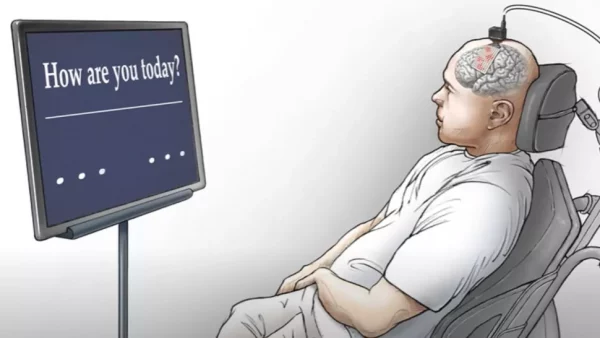A man who developed paralysis and lost his ability to speak following a stroke can now communicate using a system that translates his brain’s electrical signals into individual letters, allowing him to craft whole words and sentences in real time.
To use the device, which receives signals from electrodes implanted in his brain, the man silently attempts to say code words that stand in for the 26 letters of the alphabet, according to a new report, published Tuesday (Nov. 8) in the journal Nature Communications (opens in new tab). These code words come from the NATO phonetic alphabet, in which “alpha” stands for the letter A, “bravo” for B and so on.
“The NATO phonetic alphabet was developed for communication over noisy channels,” Sean Metzger (opens in new tab), the study’s first author and a doctoral candidate in the University of California, Berkeley and University of California, San Francisco’s Graduate Program in Bioengineering, told Live Science. “That’s kind of the situation we’re in, where we’re in this noisy environment of neural recordings.” The researchers initially tried using individual letters instead of code words, but their system struggled to distinguish phonetically similar letters, such as B, D, P and G.
“Writer Fuel” is a series of cool real-world stories that might inspire your little writer heart. Check out our Writer Fuel page on the LimFic blog for more inspiration.


